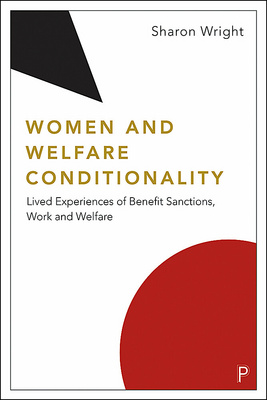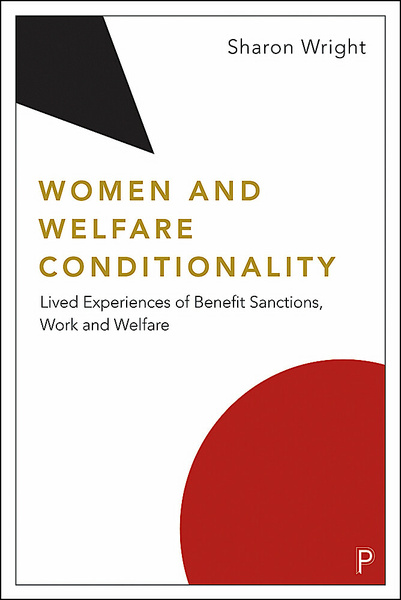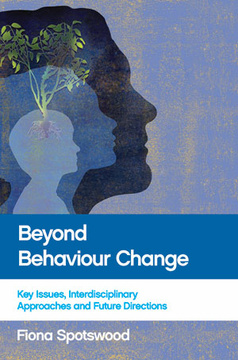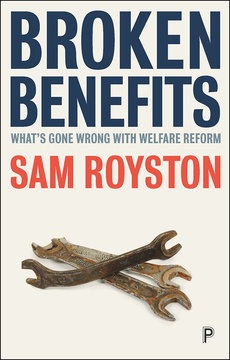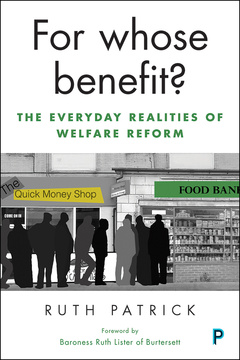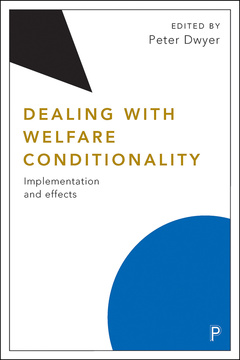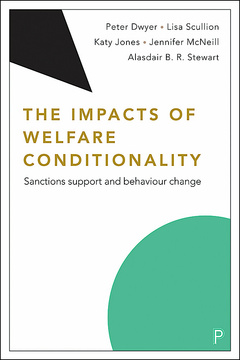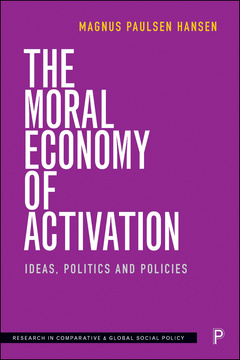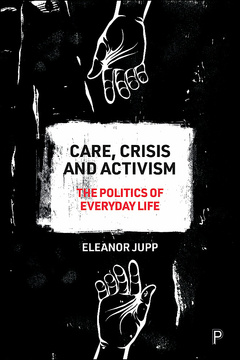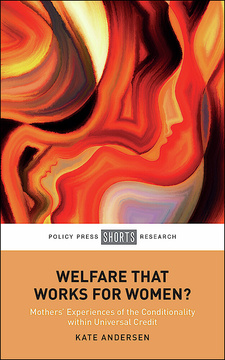Women and Welfare Conditionality
Lived Experiences of Benefit Sanctions, Work and Welfare
By Sharon Wright
ISBN
978-1447347743Dimensions
234 x 156 mmImprint
Policy PressISBN
978-1447347736Dimensions
234 x 156 mmImprint
Policy PressISBN
978-1447347774Imprint
Policy PressISBN
978-1447347774Imprint
Policy Press*** Winner of the SPA Richard Titmuss Book Award ***
Winner of SPA Richard Titmuss Prize 2024.
Recent welfare reforms, based on austerity narratives and a gender-neutral rationale, have failed to recognise the ways in which women and men experience the different demands and rewards of paid employment and unpaid care.
This book draws on a wealth of qualitative longitudinal evidence to cast light on women’s lived experiences of welfare and work. Giving voice to social security recipients, this book uncovers the hidden gendered bias of conditional welfare reforms to challenge dominant political discourses, policy design and practice norms.
It combines and develops three interdisciplinary perspectives – feminist analysis, lived experience and street-level bureaucracy – to offer a new understanding of British welfare reform policies and practice.
"All in all, this is a highly recommended book for both academics and (hopefully) also politicians and policy makers in the field of social security law." Journal of Social Security Law
“This is an important book in the tradition of scholarship on women and the welfare state. It renders the gendered subtext of contemporary welfare policy text.” Eve Worth, University of Exeter
“The experience and impact of conditionality rules in social security on women are brought vividly to life in this compelling and original research. A superb book, full of insight and robust analysis.” Jane Millar, University of Bath
Sharon Wright is Professor of Social Policy at the University of Glasgow.
1. What Does Work-based Welfare Reform Mean for Women?
2. Re-Theorising Conditional Welfare As Gendered Lived Experience and Street-Level Practice
3. Policy Context: The Hidden Gendered Impacts of Conditional Welfare Reforms
4. Re-Writing Retirement As ‘Work Experience’: Older Women’s Gendered Encounters With the Work Ethic
5. Crushing Conditionality: Women Living Through Heavily Enforced Work-Related Conditionality
6. In the Shadow of Sanctions: Disciplining Women and Children for Violating Male-Defined Work Norms
7. Conclusions
Appendix 1: The Welfare Conditionality Study
Appendix 2: Sanctions Overviews







